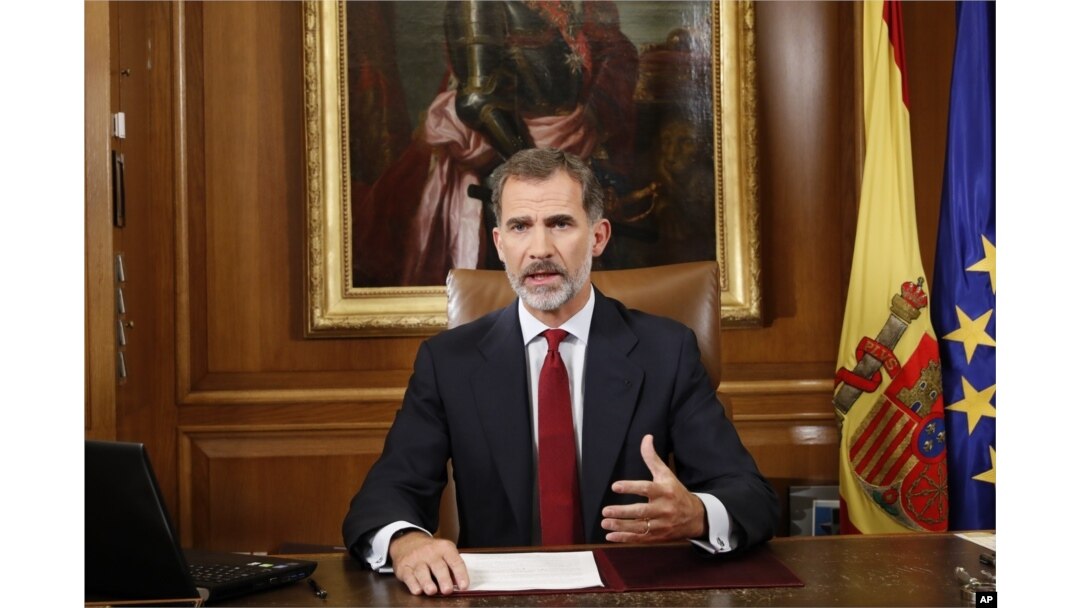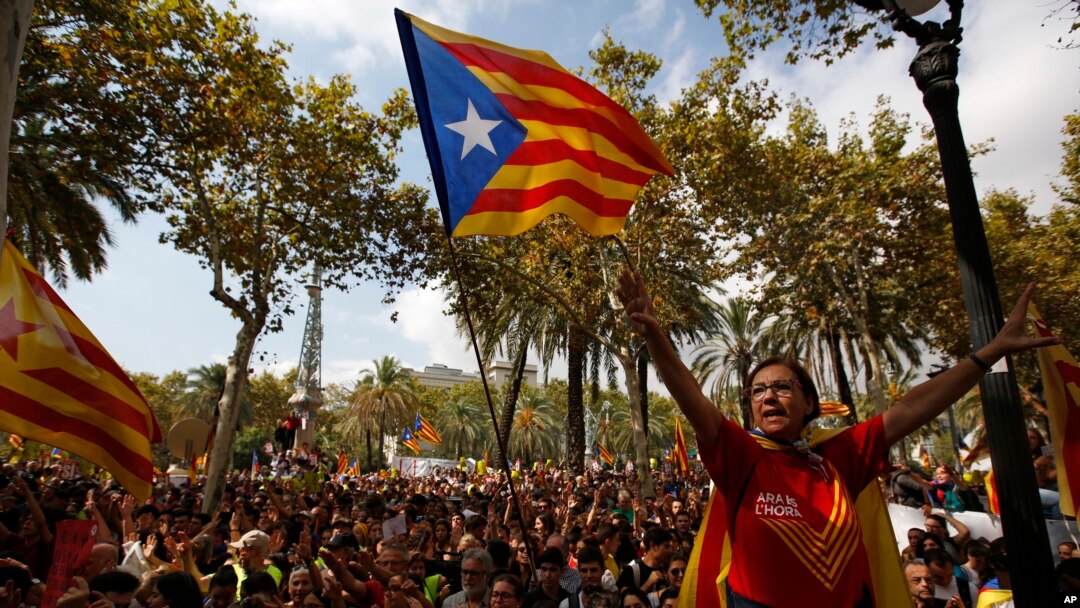Despite a warning from Spain's King Felipe VI about the threat to national stability, the leader of the Catalan regional government is vowing to press ahead with an independence declaration within days.
Carles Puigdemont was also expected to deliver a speech Wednesday, three days after some 90 percent of Catalans voted to break away from Spain, although less than half of the registered electorate turned out to vote.
The Spanish government says Sunday's referendum was illegal under the constitution and threatened to put the Catalan region under its control. In a televised address Tuesday night, King Felipe echoed the Madrid government’s view.

In this image released by the Spanish Royal Palace, Spain's King Felipe VI delivers a speech on television from Zarzuela Palace in Madrid, Oct. 3, 2017.
“Those authorities have undermined the feelings of affection and solidarity that have united and will unite the whole of the Spaniards,” Felipe said in his remarks, which come as Spain faces its biggest constitutional crisis in a generation.
His speech did not mention the heavy police response to the referendum that left hundreds injured; neither was there any appeal to Catalans for unity. The speech appears to have galvanized feelings among pro-independence demonstrators.
Watch:
Your browser doesn’t support HTML5
Catalonia to Declare Independence From Spain ‘Within Days’ As King’s Speech Stokes Crisis
Barcelona resident Jose Calvo voiced anger at the tone of the king's words.
"He forgets that this is happening because here we pay triple taxes which feed half of his country, and also him, who lives for free.”
In an interview Tuesday, Puigdemont warned Madrid not to intervene.
Catalan President Carles Puigdemont, center, speaks to the media at a sports arena designated a polling station by the Catalan government, in Sant Julia de Ramis, near Girona, Spain, Oct. 1, 2017.
“That is going to be, I insist, another mistake in this chain of mistakes. After each error, we have come out more reinforced,” he said.
A unilateral declaration of independence could lead to further violence, says analyst Francisco de Borja Lasheras of the European Council on Foreign Relations in Madrid.
“This will first lead to more riots, in and between Catalans themselves, and secondly it will force the Spanish state to resort to a constitutional provision, that could include putting the Catalan police under the command and control of Madrid,” he said.
Pro-independence Catalonians have appealed to the European Union for help — but Brussels has said the constitutional rule of law must prevail.
Catalan Raimon Castellvi wears a flag with an Estelada (Catalan separatist flag) as he protests outside the European Commission in Brussels after Sunday's independence referendum in Catalonia, Belgium, Oct. 2, 2017.
“[The Catalan government] wants international engagement so that this argument that there are two sides and thus we need mediation etcetera, will fly. But on the other hand, I don’t see the [European] Commission getting engaged anytime soon, because at this point the authorities in Madrid are trying to enforce the Spanish constitution,” Lasheras told VOA.
Still, Catalan independence leaders appear determined to push ahead as Europe faces the potential break-up of one of its core members.


